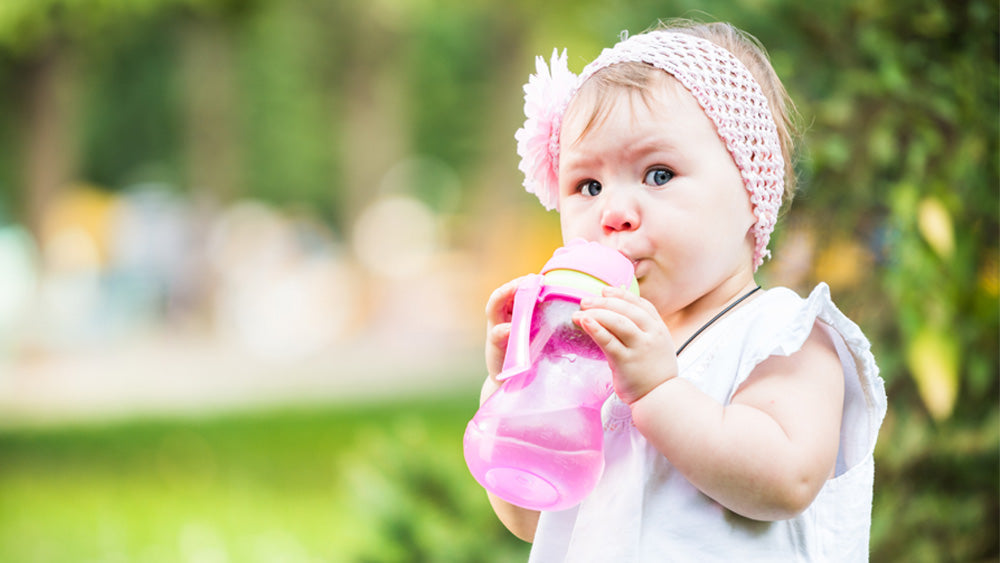Ensuring that your toddler stays hydrated is crucial for their health, but it's important not to overdo it, as too much liquid can leave little room for the nutrients they need from food. Finding the right balance is key, and here’s a guide to help you manage your toddler's daily fluid intake.
Daily Fluid Needs for Toddlers
Toddlers can be unpredictable when it comes to what they eat and drink. Some may carry around sippy cups all day, drinking too much and not eating enough, while others might avoid milk altogether, missing out on important nutrients like calcium and protein. Here’s a general guide for daily fluid needs:
- 12 to 24 months: 1 to 4 cups of water and 2 to 3 cups of milk
- Ages 2 to 5: 1 to 5 cups of water and 2 to 2.5 cups of milk
Milk and water are really the only drinks your toddler needs. You can track their fluid intake by measuring what you offer in the morning and distributing it throughout the day. It's best to avoid sugary drinks like sodas, sports drinks, and even 100% juice, which can be high in sugar.
How Much Milk Should Toddlers Drink?
Milk is a critical part of a toddler’s diet because it provides essential nutrients for growth. Here's a breakdown of how much milk they need based on their age:
- Ages 1 to 2: Toddlers should drink 2 to 3 cups (470–710 ml) of whole milk per day. Whole milk contains healthy fats that are vital for brain development. If there's a family history of obesity or heart disease, consult your paediatrician about switching to reduced-fat or 2% milk.
- Ages 2 to 5: By age 2, toddlers should transition to low-fat (1%) or nonfat (skim) milk, consuming about 2 to 2.5 cups per day. Milk at this stage continues to provide essential nutrients like calcium, protein, and vitamins A and D.
Avoid giving your toddler plant-based milk alternatives such as almond, rice, or oat milk unless advised by your doctor, as they typically lack the protein and calories that cow’s milk provides. Soy milk can be an exception if necessary.
It’s important not to let your toddler drink too much milk, as it can curb their appetite for solid foods, leading to a lack of other essential nutrients like iron. Too much milk can also increase the risk of iron-deficiency anemia, which can affect learning and behavior.
How Much Water Should Toddlers Drink?
Water is the best drink for your toddler, especially between meals, and it helps develop healthy drinking habits early. Here are the recommended daily amounts:
- 12 to 24 months: 1 to 4 cups (236 ml to 946 ml) of water per day
- Ages 2 to 5: 1 to 5 cups (up to 1182 ml) of water per day
Offering water throughout the day will keep your toddler hydrated without affecting their appetite for solid foods.
How Much Juice is, Okay?
It’s best to limit juice intake for toddlers. The American Academy of Paediatrics recommends that toddlers between 1 and 3 years old should drink no more than 118 ml of juice per day. Juice often contains high levels of sugar, which can lead to cavities and unnecessary calories. If you do offer juice, make sure it's 100% fruit juice and consider diluting it with water.
Whole fruits are a better alternative to juice since they contain fiber and essential nutrients.
Tips for Encouraging Toddlers to Drink More
If your toddler is resistant to drinking, try these tips:
- Lead by example: Drink water throughout the day and let your toddler see you doing it.
- Make it fun: Let your child pick out their own sippy cup or water bottle to make drinking more enjoyable.
- Transition to cups: Help your toddler move from bottles to regular cups, even though it may take some practice and patience. Limiting the use of sippy cups can also prevent habit-forming behavior.
- Flavoured water: If your child isn’t fond of plain water, try adding a splash of flavour with lemon or berries. Offering water-rich fruits like watermelon and strawberries can also help with hydration.
Dehydration Warning Signs
Active toddlers, particularly those playing outside in warm weather, may be at risk for dehydration. Watch out for these signs:
- Irritability
- Dry lips or mouth
- Flushed skin
- Fewer wet diapers or dark urine
If you're concerned about your child’s hydration or notice any of these symptoms, it’s best to consult your paediatrician for advice.
Balancing the right amount of fluids is key to supporting your toddler’s health. Sticking to water and milk as their primary drinks ensures that they get the nutrients they need without filling up on empty calories. Keeping an eye on your toddler’s fluid intake helps them stay hydrated and healthy, fostering habits that will benefit them for years to come.
